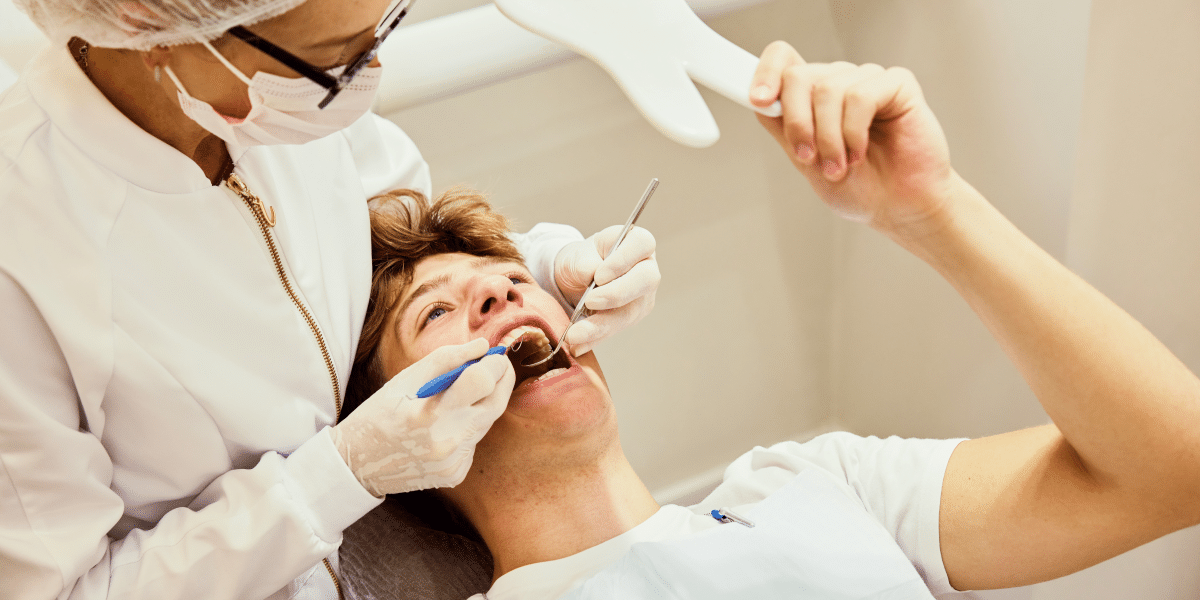Explore the synergistic integration of dental and medical disciplines to enhance patient care. This collaborative approach highlights the importance of holistic treatment strategies, aiming to improve overall health outcomes by bridging the gap between oral health and general medicine.
To fully realize the potential of this collaborative approach, advancing post-graduation education becomes crucial, ensuring that healthcare professionals are adequately prepared to deliver comprehensive, interdisciplinary care.
Understanding the Intersection of Oral Health and General Medicine
Oral health significantly impacts overall health, with conditions like periodontal disease linked to systemic issues such as cardiovascular disease, diabetes, and respiratory infections.
Understanding this intersection helps healthcare providers identify and manage risk factors that affect both oral and general health. Comprehensive patient care requires recognizing these connections, promoting early diagnosis, and integrating treatments that address the broader implications of oral health on the body. By fostering this understanding, professionals can deliver more effective and holistic healthcare.
Strategies for Interdisciplinary Collaboration
Effective interdisciplinary collaboration between dental and medical professionals involves regular communication, shared patient records, and joint treatment plans. Establishing multidisciplinary teams and creating integrated care models ensure that patient care is seamless and comprehensive. Training programs and workshops can enhance mutual understanding of each discipline’s expertise, fostering a cooperative environment. By implementing these strategies, healthcare providers can work together more efficiently, addressing patient needs holistically and improving overall health outcomes.
The Role of Oral Health in Systemic Wellness
Oral health is an important aspect of overall wellness, affecting various body systems. Poor oral hygiene and conditions like periodontitis can worsen chronic diseases such as diabetes and heart disease. It also influences nutrition, speech, and overall quality of life. Regular dental check-ups and preventive care are crucial for maintaining overall health. Educating individuals about the significance of oral hygiene and its links to general well-being is key to encouraging improved health practices and early intervention.
Innovations in Integrated Patient Care
Innovations in integrated patient care include the use of advanced technologies such as digital health records, telehealth services, and AI-driven diagnostics. These tools facilitate seamless information sharing and comprehensive care coordination. Multidisciplinary clinics and collaborative care pathways also exemplify innovative approaches, ensuring that patients receive holistic treatment. Personalized care plans that consider both oral and systemic health factors are becoming more common, promoting a patient-centered approach that enhances health outcomes and patient satisfaction.
Empowering Healthcare Professionals for Collaborative Success
Empowering healthcare professionals involves providing education and training in interdisciplinary care, leadership, and communication skills. Encouraging mentorship and networking opportunities can foster collaboration and knowledge exchange. Supporting women and underrepresented groups in leadership roles within healthcare can drive diverse perspectives and innovative solutions. By creating an inclusive and supportive environment, healthcare professionals are better equipped to collaborate effectively, leading to improved patient care and health outcomes.
Integrating oral health into general medical practice offers a holistic approach to patient care by acknowledging the significant links between dental health and overall systemic health. By fostering interdisciplinary collaboration between dentists, doctors, and other healthcare professionals, innovative practices can be developed that promote better health outcomes. This cooperative effort ensures that all aspects of a patient’s health are considered, from chronic disease management to preventive care. Empowering healthcare professionals with the tools and knowledge to recognize and act on these connections not only enhances patient outcomes but also improves overall well-being by addressing both immediate and long-term health concerns.
Published by: Martin De Juan
















